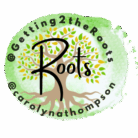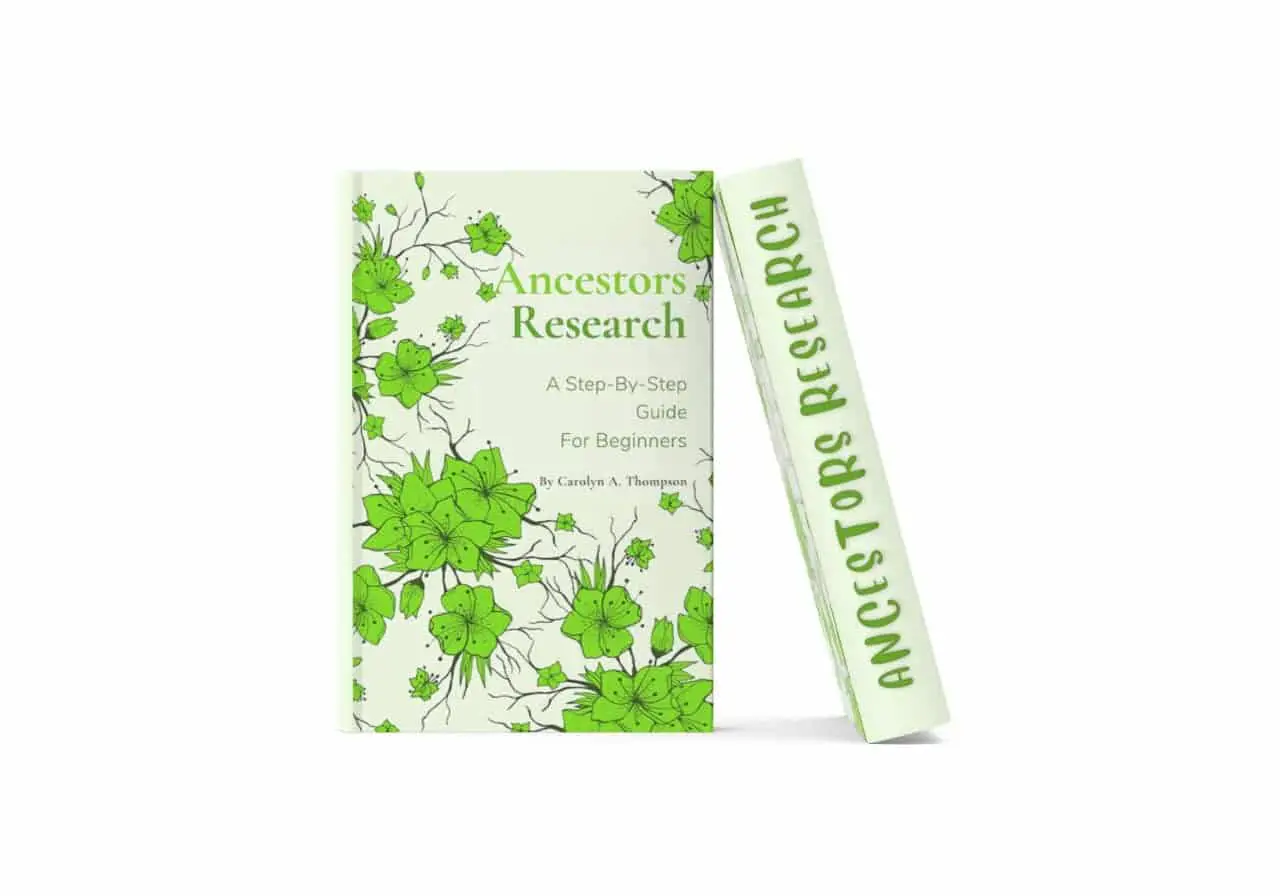Genealogy, the study and tracing of a family tree and lineage, acts as a crucial link to our past, providing insight into our origin and the journeys our ancestors undertook.
This ancient science carries unique worth, extending beyond a mere hobby; it serves as a means of forging connections, both with our familial past and with our current relatives.
Navigating the intricate dynamics of creating your family tree, however, may appear daunting.
But with patience and guidance, the otherwise complex process morphs into an exciting exploration of your roots.
This journey begins with understanding the basics of genealogy, its relevance, and utilizing it in your pursuit.
This includes effective methods for researching your ancestors and culminates in building and organizing all information into a comprehensive, structured family tree.
I would love it if you read my detailed guide, “Ancestors Research | Free Beginner’s Guide” and “Creating a Stunning Family Tree Online: Tips and Tricks.”
Understanding Genealogy
The Essence and Importance of Genealogy: A Dive into Family History
There is no substitute for knowing one’s roots; there is no comparison to comprehending the story that led to one’s existence.
Here is where genealogy steps in, enveloping us in a blanket of generational stories and histories and offering insights into our familial past.
But what really is genealogy?
Simply put, genealogy is the study of families, family history, and finding the lineages of individuals.
It’s tracing the journey of family connections across the ages. It doesn’t restrict itself to listing family members. It probes deeper.
It unearths the occupations, stories, connections, adventures, and recipes that have been passed down through generations.
Unearthing ancestors may appear reserved for historians, seemingly out of place on a busy parent’s to-do list.
However, numerous compelling reasons warrant the significance of this ancestral treasure hunt.
- Appreciation of History and Culture: By understanding your roots and generations past, we gain unique insights into history and culture. The personal connection to significant events fosters an appreciation unlike anything found in textbook learning.
- Medical History: Knowledge of family health patterns enhances the ability to foresee potential risks or genetic conditions. This advantage enables taking preventive measures or treatments promptly.
- Preserving Family Stories: Every family boasts stories filled with wisdom, humor, or heroic deeds. Genealogy ensures that these stories are not lost in the sands of time. These can serve as a source of inspiration, instill values in children, and strengthen family bonds further.
- Identifying Family Traits and Patterns: This research often reveals perennial family characteristics or life patterns that are continually repeated. These discoveries can be helpful in understanding family behaviors and dynamics.
- Sense of Belonging: Finding a connection with our past lends a sense of belonging and grounding. This helps with the overall perception of identity and can foster a sense of security and self-confidence in children.
Pursuing the art of genealogy can turn into an incredible family project that continues over years and decades.
It’s a unique hobby that connects the past with the present and sets the stage for the future.
We don’t need to be experts, but a little bit of time and curiosity are needed to retrieve the gems hidden in our genealogy.
Remember, every twig and every branch in the family tree tells a story. Let’s make ours heard!

Researching Your Ancestors
Discovering Your Roots: Effective Methods of Ancestor Research
A strong foundation of knowledge and curiosity forms a beautiful backdrop to begin your journey through the centuries, tracing back to your roots and illuminating the stories of your ancestors.
There’s something incredibly gratifying about piecing together the puzzle of your lineage.
Genealogical research brings history to life and instills a sense of wonder and connection that transcends the concepts of time and space.
Before we dive into some effective methods for researching your forebears, let’s remind ourselves: patience, perseverance, and curiosity are key!
- Start with What You Know:
Jot down full names, birth, marriage, and death dates, and locations for all the relatives you can think of, beginning with your closest kin. This will form your initial data map. From your notes, develop a basic family tree, marking out the familial connections.
- Consult Family Records:
Don’t underestimate the potential wealth of information that may be lurking within old photo albums, family Bibles, diaries, letters, or documents stored away in your attic. Such items can churn up much-needed leads and spark intriguing tales.
- Engage Older Family Members:
Often, our elders serve as living repositories of rich ancestral knowledge, family lore, and precious nuggets of history. Their memories can act as a fascinating trip down history lane.
- Use Online Genealogy Databases:
Utilize websites like Ancestry and FamilySearch that house billions of digitized public records from all over the world. These databases can assist in unlocking doors to ancestry details, census records, military documents, and more.
- Investigate DNA Testing:
DNA tests can provide a genetic map that marks out geographic regions where your ancestors might have originated and even connects you to distant relatives. It’s a burgeoning field of genealogy that can add depth to your family history puzzle.
- Explore Local Archives and Libraries:
These institutions typically house historical archives, local newspapers, and periodicals that can be scoured for obituaries, birth notices, or interesting articles featuring your ancestors.
- Reach Out to Genealogical Societies:
These specialty clubs can be a goldmine of localized knowledge, resources, and potential networking. They offer expertise and support and often run workshops that can be incredibly valuable for first-time genealogists.
- Keep Everything Organized:
Remember, genealogy is a long-term project. Start a system for organizing your findings right from the get-go. Scribble notes, maintain physical or digital files, create folders for different relatives or lineages—whatever works best for you and your research style.
The pursuit of genealogy can be an amazing commune with the past; it’s like detectives’ work, but instead of solving a crime, you are untangling the thread of your own history.
Your heartbeat once echoed in the chambers of hearts long silenced. They whispered their stories into your DNA. Listen closely, and you might just hear them speak.
Building And Organizing the Family Tree
Unfolding Family Mysteries: How to Present and Organize a Family Tree
Creating an organized and presentable family tree can bring clarity and understanding to your family lineage.
Formulating it can potentially transform into a nominal treasure hunt, opening doors to fascinating stories and perhaps to hidden secrets.
But how should one approach this? Here is a comprehensive guide on how to effectively organize and present the information in a family tree.
First things first, let’s embark on this journey of discovery by starting with what we know.
Often, blazing trails pass through the familiar, so let’s begin with immediate family details: parents, siblings, spouses, and children.
Write these details down and gradually move on to extended family members. Remember, this is not a test of memory; it’s a journey through time; every bit of information counts!
Next, plunge into the real treasure trove—the family records.

These could be anything from birth certificates, marriage and death certificates, old letters, family bibles, census records, wills, and land records.
Scrapbooks and photo albums can also provide vital clues. Remember, these documents serve as anchors, bolstering the accuracy of your family tree.
Never undermine the wealth of wisdom handed down through generations. Every family has those beloved members who adore sharing their life’s stories.
Engage with them. They are the living catalogs of family history, so set up friendly, cozy chats with older family members and immerse yourself in the stirring tales.
We are fortunate to live in a digital age that offers a multitude of online genealogy databases.
Websites such as Ancestry, MyHeritage, and FamilySearch hold slews of information just waiting to be unearthed.
Subscription costs vary, but the reward of exploring collaborative family trees, historical databases, and user-created content is often astounding.
For a deeper dive into your DNA, consider genetic testing services like 23andMe or AncestryDNA.
These tests not only offer the geographical background of your ancestors but can also connect you with relatives linked through biology.
It’s the magic of science that bridges the gap between the past and the present.
Local historians and librarians are the unsung heroes of the genealogy journey.

Exploring local archives and libraries can provide access to regional history, maps, microfilms, newspapers, and historical publications—all adding color to your family story!
Maintaining a connection with genealogical societies is akin to being a member of a club made up of history detectives.
They offer access to obscure resources, provide learning opportunities, and put you in touch with like-minded people who can offer techniques and advice for your family tree.
Finally, organization is key.
Keep everything organized! Whether you prefer a digital method using genealogy software or a traditional hard copy method with physical files, staying organized is crucial.
Label everything clearly, cite your sources, and categorize by family branch or generation.
Creating a family tree is more than just a pursuit of the past; it’s an investment in your family’s future.
As you leaf through your family’s history, you essentially construct a heritage chest that will enlighten future generations.
So hop on this exciting time machine, and let’s organize family history together!

Discovering your ancestors’ stories and feeling a tangible connection to your family’s past can provide both profound insight and deep fulfillment.
Learning how to effectively collect and organize data using various research techniques is key to making the most of your genealogical endeavors.
Mastering the art of structuring a readable, visually engaging family tree is an invaluable skill gained through this process.
The task may start as a challenging pursuit, yet it soon transforms into a rewarding voyage through time.
A newfound appreciation for genealogy might just be the golden thread that knits together generations, giving everyone a root to hold on to in this ever-changing world.
Building your family tree goes beyond being just a fascinating project or an engrossing pastime.
It deepens your understanding of your own identity, reinforcing the crucial role each generation played in shaping the ‘who,’ ‘what,’ and ‘where’ you are today.
Frequently Asked Questions (FAQ)
FAQ 1: How can I get started with building my family tree as a beginner?
A: Starting your genealogy journey as a beginner can be exciting and rewarding. Here are some steps to get you started:
- Gather Family Information: Begin with what you know. Collect the names, birthdates, marriage dates, and other details of your immediate family members. This will serve as your foundation.
- Family Records: Check family records, old photos, diaries, and letters for additional information. These can often reveal valuable clues.
- Talk to Relatives: Engage with older family members who might have stories, memories, or knowledge about your ancestors.
- Online Resources: Explore genealogy websites like Ancestry and FamilySearch. They have a wealth of records and tools for research.
- DNA Testing: Consider DNA testing to uncover genetic connections and learn more about your ancestry.
FAQ 2: What are the benefits of delving into genealogy and building a family tree?
A: Genealogy offers several benefits:
- Appreciation of History and Culture
- Medical History Insights
- Preserving Family Stories
- Identifying Family Traits and Patterns
- Sense of Belonging
It’s an investment in understanding your roots, family heritage, and connections.
FAQ 3: How do I maintain organization while building a family tree?
A: Staying organized is crucial. Keep detailed records, cite your sources, and categorize information by family branch or generation. Label everything clearly and use genealogy software or physical files for better organization.
FAQ 4: What is the significance of DNA testing in genealogy research?
A: DNA tests can provide insights into your genetic ancestry and geographical origins and connect you with relatives who share your DNA. It’s a valuable tool for uncovering family connections.
FAQ 5: Is genealogy research a time-consuming project?
A: Genealogy can be as time-consuming as you make it. Some people enjoy it as a lifelong hobby, while others dedicate a specific amount of time each week. The key is to start with the basics and progress at your own pace. Enjoy the journey of discovering your family’s history!







